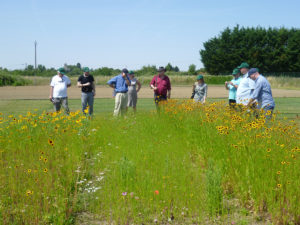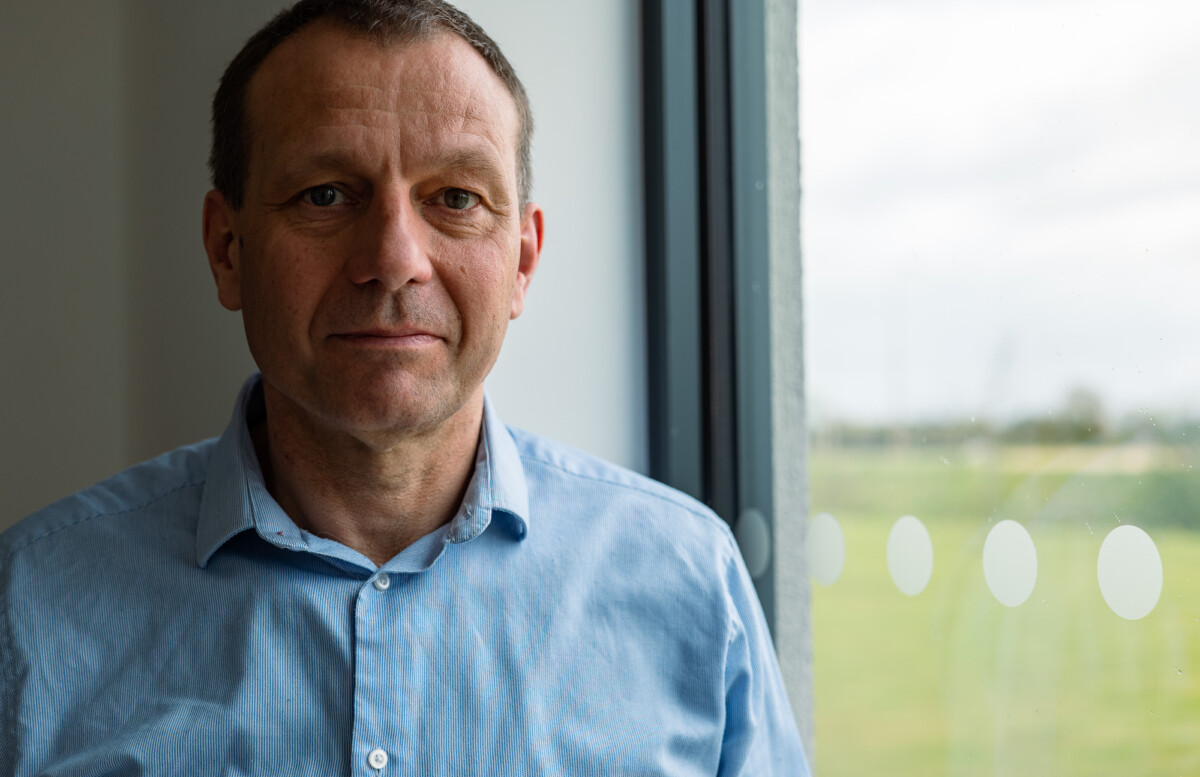Day Of The Tetraploid: Wonderful work is being carried out by Top Green which will take sports surfaces to another level. Scott MacCallum dug out his passport to find out more about what is going on.
A message to all turf managers who find themselves battling with a poor quality sward, disease or pest infestation. There is help at hand and it can be found in a little corner of north west France where all your problematic grass issues are being tackled and solutions found. It may take some time but be assured that the work is being done.
Top Green, the seed development arm of Rigby Taylor, are based at Les Alleuds, near Anger, and it is there that test plots containing thousands of cultivar species and varieties are examined, developed and nurtured to identify those most likely to offer salvation to turf managers all over Europe and beyond.
A recent press trip, organised by Rigby Taylor, provided the ideal opportunity for a group of the country’s industry journalists to witness the work that goes on at the Top Green Research facility.
Situated in idyllic rural countryside the Top Green is a highly sophisticated and cutting edge operation, a hint of which comes with the sight of robot mowers silently cutting the grounds around the building.
The surrounding fields contain grass varieties which will undoubtedly be found in the sports pitches and golf courses of the future, but you would do well to track them down. There are 90,000 metre square trial plots at Top Green – 30,000 are planted each year on a three year cycle – and they include every conceivable combination of cultivar species and variety, each one carrying hopes that it will develop into something special.
Brit abroad, Stephen Alderton is Top Green’s Assistant Managing Director and a man who knows these plots inside out.
“We test the plots visually three to four times a year, looking for colour, consistency, disease, drought and shade resistance and in doing so someone will walk 30km,” revealed Stephen.
At various stages seed from well performing plots will be married together to see if weaknesses can be eliminated and strengths built upon but it is a pain staking process fraught with unfulfilled expectations and disappointments.
The French grass breeding fraternity also carries out its own research with companies sharing out their own seed for blind testing on each other’s trial plots, a system which works extremely well.

“You can produce a potential variety which ticks all the boxes we want to find only to discover that we can’t scale it up by producing enough seed to make it commercially viable,” explained Stephen, adding that with 15 years of research and development behind each new variety a fall at the final hurdle can be tough to bear.
Lighting rigs and wear machines are also in evidence at Les Alleuds to ensure that all tested grass experiences the same sorts of issues it would face were it to pass all its exams and graduate as a fully fledged new variety and come up against the studs, spikes, clubs and sticks of modern day sport.
Amid the 50 shades of green (and more) of the grass plots there can also be found a splash of colour with the Euroflor wild flower mixes which have been developed and which prove such an attraction to local authorities and managers of open space, or golf courses, who wish to enhance the overall appearance of their sites.
But for turf professionals everywhere it is the prospect of a new super grass which may allow them to sleep soundly at night and in recent years the development of the tetraploid which sounds like the creation of John Wyndham or something from a Dr Who episode, but is actually one of the most remarkable advances in cultivar performance.
No science fiction here. This is science fact.
Jayne Leyland, is Rigby Taylor’s Grass Seed & Line Marking Product Manager, and she has mastered the art of explaining the highly technical background to tetraploids in an understandable fashion.
“Ploidy is a reference to the number of complete sets of chromosomes within the nucleus of each plant cell. Each chromosome is made of protein and is naturally occurring in many plant species. It can also be induced in plants through the application of a natural alkaloid plant hormone,” explained Jayne.
Alright, perhaps I overstated the understandability factor but the benefits are there to be seen and Jayne is as good as anyone at explaining the remarkable performance achieved by tetraploids.

Tetraploid perennial ryegrass boasts high energy seed and strong growth in cooler conditions making it ideal for autumn overseeding and repairs while excellent winter wear and re-growth helps keep surfaces in play as the season carries on through winter. The high root mass also delivers greater drought tolerance and stability, while it has also proved to be excellent in shaded conditions.
“Shade and wear trials carried out at Les Alleuds have shown how the latest tetraploid cultivars deliver excellent performance in reduced light levels,” said Jayne.
“Although relatively new to the amenity market, tetraploid mixtures and blends are fast becoming the number one choice for renovation and repaid of natural and hybrid grass surfaces in a host of environments including football, and cricket pitches, racecourses and golf course.”
Patience is a virtue and with a 15 year lead time on a new variety of cultivar it can be found in bucket loads at Top Green, but with the expertise on hand there, together with Rigby Taylor’s ability to bring it to market, those turf professionals waiting for solutions will be rewarded.
Turf Matters would like to thank Stephen and Howard, of Top Green, and Richard and Jayne, of Rigby Taylor, for their generous hospitality and excellent company during the visit.



























